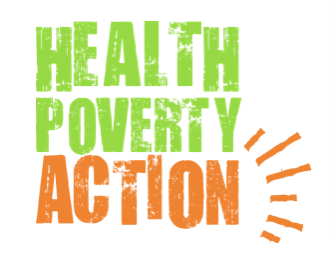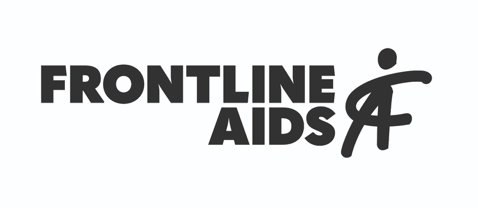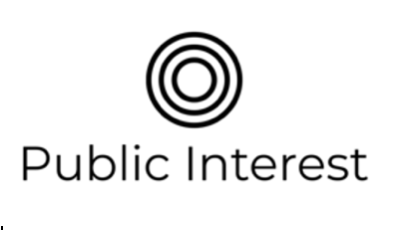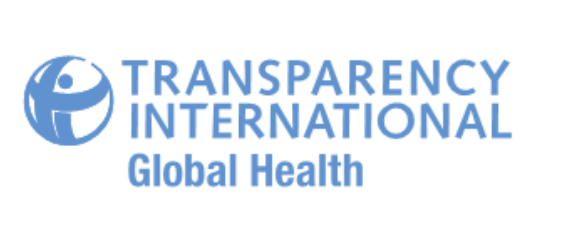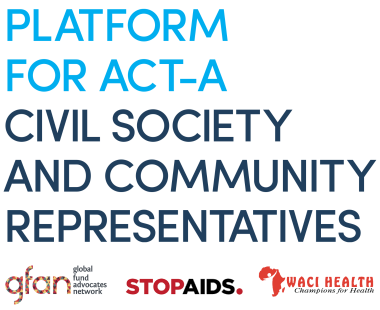The Case for CSO Representation on the Financial Intermediary Fund for PPR
White Paper for Discussion at the World Bank Board on Thursday, 30th June 2022
Executive Summary
|
|---|
Context for White Paper
The proposal seeks to establish a new financial mechanism, a Financial Intermediary Fund (FIF), hosted by the World Bank, to address the financing gap for pandemic preparedness, prevention, and action. The memorandum to be discussed at the World Bank board on 30th June 2022 states that ‘The FIF’s governance would ensure dedicated processes to capture the voices of Civil Society Organisations (CSOs)’, but does not specify how. (p.11) This lack of clarity on the role of CSOs on the governing board is concerning, given that a key recommendation of the High Level Independent Panel was to establish an inclusive and multisectoral governance model. This is also supported by several G20 countries calling for the inclusion of CSOs on the governance of the FIF, including Australia, Canada, and the Netherlands.
The experience of Global Fund, Unitaid, and other global health agencies dictate that the best way to ‘capture the voices of CSOs’ would be through permanent voting representation of civil society and community constituencies in the governance structure/board of the FIF, and funding to constituencies in order to support engagement with broader civil society and communities. Further detail on CSO Board seats in global health architecture is in the annex. CSOs were integrated throughout all four pillars of the ACT-Accelerator, Facilitation Council and its working groups – and played an integral role in speeding up and increasing equity in access to pandemic tools and continue to be strong voices on the need for PPR to emphasise health systems (including community systems) as central – not ancillary to – pandemic response.
Those who oppose CSO inclusion within governance structures often cite: the need for board agility and efficiency; a perceived lack of technical expertise among civil society; and potential conflict of interest of CSO involvement in decision-making as reasons for exclusion. The following matrix presents arguments and case studies which refute the basis of this argument – and present the value add of civil society for effective PPPR.
Value Add of CSOs in Pandemic Response Governance
| Element | Arguments and evidence | |
|---|---|---|
| 1 | Agility/Efficiency | The contention that CSOs will reduce agility is inaccurate. As an example, during the COVID-19 pandemic, at the time when self-tests had proliferated across the Global North, a key barrier to self-tests in the Global South, in addition to the price, was that there were no WHO guidelines on self-tests. These discussions were hamstrung for 8 months due to conservatism on the part of certain global health agencies. The absence of guidelines prevented procurement by procurers such as the Global Fund, as well as national governments.
Working with Global Fund, FIND, and others, it was CSOs that introduced a sense of urgency and increased pressure to speed up guidelines, including through this op-ed that precipitated a meeting with the WHO DG and the subsequent approval of self-tests guidelines. In other words, it was CSOs that increased agility in this regard. CSOs also took the lead in advocating for community-based outpatient test-and-treat strategies and greater collaboration between ACT-A Tx and Dx Pillars and authored a White Paper and Advocacy Brief on this topic. It is also well established that in response to the HIV pandemic, communities and civil society acted as multipliers and incubators of critical innovations which drove the HIV response; this agility was also demonstrated in the initial responses to covid-19 with networks of people living with and affected by HIV regularly gathering evidence to better understand problems identified by members of their communities. These networks understand how to frame and deliver prevention messages and work with governments to ensure that policies and services are put in place to address these challenges. Agility and efficiency of CSOs were also acknowledged by the Independent Panel for Pandemic Preparedness and Response, who emphasised that ‘For the best results, communities and civil societies should be partners early on in the design, planning, implementation, and assessment of such efforts on the international, national, and local levels.’ While we should all value agility, agility should not be prioritised at the expense of a deliberative decision-making process that ensures all key stakeholder perspectives are both heard and addressed. It is always possible for a few actors of similar mind or background to make quick decisions together but the decisions they make seldom if ever enjoy legitimacy, buy-in or long-term effectiveness because they can easily ignore the realities of those most affected. Decisions made through the exchange of views and priorities of all key stakeholders mean that everyone has a better understanding, appreciation and support for the ultimate decision reached, particularly if achieved through negotiated consensus. |
| 2 | Technical expertise | In the formation of the ACT-A, there was a misconception conveyed in public meetings to civil society that civil society does not have the necessary technical expertise to meaningfully contribute to some technical working groups or deliberations.
It seems almost incredible that it would be necessary to include a refutation of this here but hopefully it will be of little surprise to most that CSO representatives across global health institution governance bodies can bring decades of academic, technical and policy expertise on all relevant global health subjects. The ACT-Accelerator was a very recent example of where highly experienced, qualified and technically skilled civil society and community representatives were identified through open selection processes managed by the civil society platforms for the broad range of pillar technical working groups and for the Facilitation Council. The expertise civil society representatives have brought to ACT-A most recently and to the Boards of all the ACT-A co-lead agencies over the last two decades is well documented and understood by secretariats and other board members alike. In addition, CSOs bring lived and historical experiences addressing epidemics and monitoring disease trends in different countries – and this qualitative expertise is essential towards ensuring that efficiency and impact are achieved. In linking point one and point two, CSO networks work together to discuss the key technical elements of policy; from this base, CSO networks are able to push back when weak technical arguments are used to delay or block advances on important policy initiatives. |
| 3 | Local Context | Efficiency and impact require that responses be informed by up-to-date local expertise and experience. CSOs – due to established networks into LMICs – are a conduit towards getting good intelligence quickly, adapting strategies based on local context and driving rapid action; intelligence that can prevent the wastage of resources.
An example is the return of doses from the DRC to the COVAX in April 2021. As news broke, CSOs on the ACT-Accelerator reached out the DRC CSO colleagues, who informed us that there was widespread distrust in government that translated into distrust in public health services, that there had been insufficient engagement of community health workers who had been mobilised in the Ebola response, and that provincial health leadership had not been engaged. The COVID Vaccines Delivery Partnership (CoVDP) was established in March 2022. While they are doing important work to address aforesaid barriers, prior to the CoVDP being established, effective CSO engagement could have expedited the necessity of increased health systems emphasis, community worker engagement, and other interventions informed by expertise on local contexts that is brought by civil society networks. |
| 4 | Conflict of Interest | It is also sometimes cited that a reason to exclude civil society and communities from voting seats in governance structures is because civil society and communities have a conflict of interest in decisions being made. One might assume this conflict of interest is because civil society may benefit or not from particular decisions being made and what implications this may have for where funding will go. In fact all actors involved in global health decision-making have vested interests in the decisions being made and where funding goes – the question of conflict of interest has always and should always be focused on being transparent about potential conflicts of interest so that everyone is aware and they can be effectively managed. This has been done effectively for the Global Fund, UNITAID, Gavi and many other global health institutions for decades and has never been a barrier to civil society or community full involvement in Board governance. |
| 5 | Sustainable Fundraising | CSOs play a critical role in ensuring ongoing resource mobilisation efforts by translating multilateral funding requests into national and regional contexts and through pushing for greater legitimacy and voice in governance arrangements (something explicitly recognised in the growing appeal of the Global Public Investment approach).
The Global Fund explicitly acknowledges that community and civil society organisations “play an important role in influencing how government budgets address health and in delivering messages that hold governments accountable and transparent. In both donor and implementing countries, communities and civil society are an important partner in advocating for increased government health spending and resource mobilisation…on a more political level, community and civil society play a crucial role in advocating on behalf of the Global Fund, both in raising awareness in implementing countries and as part of larger fundraising efforts with donor governments.” |
| 6 | Strengthen Trust | CSOs play a critical role in engaging with communities and often have a listening ear and trust to understand the ‘real’ concerns of communities. Ensuring CSOs have a voting position in the governance structure of the FIF would enable an effective use of resources in future pandemics by being able to address the community concerns in the original planning, not as an afterthought when implementation at community level begins. Ensuring community priorities and needs are prioritised and respected from the onset, will strengthen the trust in future pandemic response from the ‘bottom up’ i.e. community to global level. |
Prepared by:
Fifa A Rahman, Mike Podmore, Brook K Baker, Kanna Dharmarajah, Courtenay Howe, Olga Golichenko, Eolann McFadden, Simon Reid-Henry, Katy Kydd-Wright, Revati Chawla, Chase Perfect, Melissa Cederqvist Njihia, Wim Vandevelde, Carolyn J Gomes, Enow Awah Georges, Clare Rayner
Annex: Civil Society & Communities as decision-makers in the global health architecture
If you would like to add your logo to this briefing, please email Courtenay Howe (courtenay[at]stopaids.org.uk)
